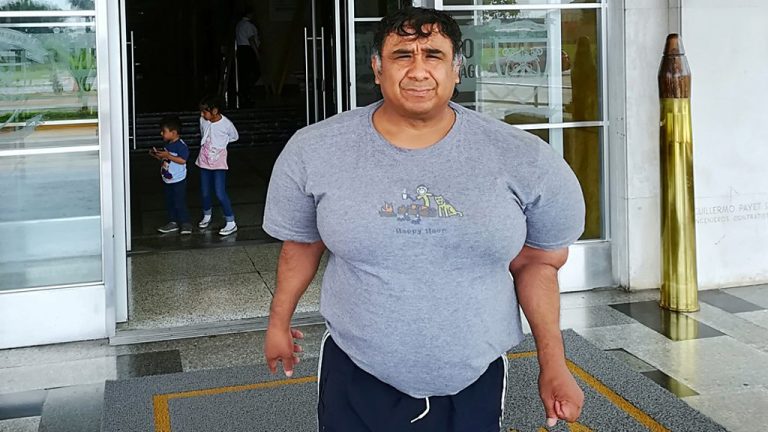With one in three Venezuelan women opting for breast enlargement procedures, it actually isn’t surprising that store mannequins in the nation now feature augmented busts as well.
According to a New York Times report, plastic surgery is so common in Venezuela that women freely talk about their operations. Even low income women save up to get operated and become what is now considered normal. Mannequin manufacturers claim that they simply had to catch up with these women, or risk bankruptcy. Many factories were in fact struggling to make ends meet until they decided to redesign their mannequins to reflect the nation’s changing beauty standards.
Mannequin factory owner Eliezer Alvarez did just that a few years back – he created a new kind of mannequin with a “bulging bosom and cantilevered buttocks, a wasp waist and long legs,” and experienced an immediate boost in sales. “The mannequins were natural just like the women were natural, (but now) the transformation has been both of the women and of the mannequin,” said Nereida Corro, Alvarez’s wife and business partner.
Photo: Portal Creativo
‘Doll Doctor’ Manuel Bonilla is one of several businessman who make a living out of giving mannequins boob jobs. He runs a ‘plastic surgery studio’ where he takes in regular dolls with apple-sized boobs and converts them to ‘watermelons’. “I don’t know if you call it art,” he said. “That is for others to determine that. But it is unique because we listen to the wishes of the customer.”
These impossibly thin, big-busted dolls began to appear in window displays a few years ago, but they now seem to have completely replaced ‘regular’ catwalk model mannequins. Nobody is entirely sure if this is a case of life imitating art or vice versa, or perhaps a mix of both. Yaritza Molina, a boutique owner in Coro, says that several clients come to her and say, “I want to look like that mannequin.” To which she responds, “OK, then get an operation.” Even Reina Parada, a woman who works at a mannequin factory, is convinced about modifying her body. “You see a woman like this and you say, ‘Wow, I want to look like her,’” she told the NY Times. She would like to get an implant surgery someday, because she believes it will improve her self-esteem.
Photo: Portal Creativo
“About 4 or 5 years ago these kind of mannequins appeared in the mall,” a Venezuelan shop owner told Metropolis TV. “At the same time you could see it at the girls who walk around here every day. I noticed that women were showing off their breasts. We sell more with these mannequins. They have also had plastic surgery.”
The plastic surgery trend has become so widespread in the nation that even longtime leader Hugo Chávez – who passed away two years ago – was concerned about the practice. He publicly spoke out against it, saying that it was ‘monstrous’ that women with low incomes prioritized surgeries over daily expenses. The average cost of breast augmentation in Venezuela is around $6,350 – approximately three months’ worth of living expenses.
Photo: Mujerlife
But any concern against the atmosphere of negative body image is easily drowned out by the proponents of plastic surgery. Like Osmel Sousa, the head of the influential Miss Venezuela pageant. Sousa, who infamously recommended a nose job for Venezuela’s first Miss Universe winner (which he claims was responsible for her victory), said: “When there is a defect, I correct it. If it can be easily fixed with surgery, then why not do it?”
Sousa also told the NY Times that beauty really is skin deep. “I say that inner beauty doesn’t exist,” he said. “That’s something that unpretty women invented to justify themselves.”















